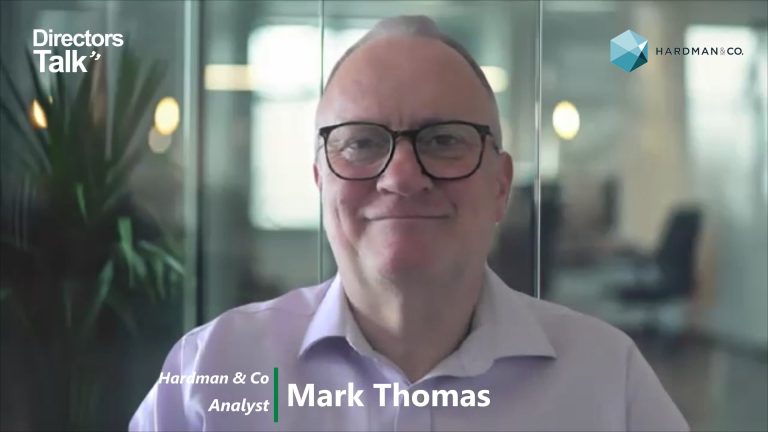B-North is the topic of conversation when Hardman and Co’s Analyst Mark Thomas caught up with DirectorsTalk for an exclusive interview.
Q1: You called your recent piece “B-North – Unquoted SME lender with unique proposition”. What can you tell us about it?
A1: They are a private business raising capital ahead of getting its banking licence (due spring 2020). You can get details of how to apply from our report. It will then attack the huge, profitable and poorly-served SME lending market. The company is unique as it combines i) state-of-the-art technology (built from scratch to address customers’ needs – so no legacy issues there), ii) offers the £20bn+ p.a. commercial broker market an unparalleled service and an innovative remuneration model, and iii) has experienced bankers based in empowered regional hubs. It will use technology to be close to customers for example inter-facing with their own management information systems. The financial model assumes a market share of just 2.5% in 2027. In our view, delivery of all of this sees a highly profitable business, which will be more efficient than peers and where credit is well controlled.
Q2: What is so unique about its technology?
A2: They have state-of-the-art technology, built from scratch to directly address customer needs. The opportunity to tailor IT to its customers, intermediaries and own needs is unique to a new business with no legacy issues or risk aversion around systems “we can’t change because they work”. Such technology can interface with customers in ways that were simply unimaginable even a few years ago. It can, for example, interface directly with customers own management information giving them an insight into the operational performance of the business, and hence its ongoing credit risk, that most bankers would dream of. It can interface with commercial broker intermediaries giving them unparalleled service. Let’s be clear about the culture though. Technology is a tool, it is the slave to the company not its master. They are a lending business with credit running through to the fingertips of the management.
Q3: You said earlier the commercial broker channel was important. Why?
A3: The company estimates that this channel will deliver 70% of its new business. Market estimates are that commercial brokers originate in excess of £20bn of lending per year and this huge number can be compared our estimate that in 2027 their loan book growth will be just £850m. Not only is its size important but critically it is an area where they can establish a competitive advantage. Firstly, it is really badly served by major banks for whom it is seen as competition and not a source of new business. Second, the current providers are often small and non-bank. Anyone with a memory of the financial crisis will know that many, not all, but many had difficulties getting finance themselves. Their banking licence and access to huge volumes of low cost retail deposits give it a competitive advantage by giving brokers a well-funded, highly-regulated alternative provider. Third, they will be a scale business, which can invest in technology and infrastructure to make the brokers lives easier. Fourth, the company has an innovative renumeration structure rewarding brokers for good business. They can make the brokers lives easier, build the brokers’ relationships with their customers, and let brokers to earn more commissions. A compelling proposition.
Q4: And the lending is via regional hubs. What can you tell us about them?
A4: The actual lending will be done through a series of probably eight to ten regional offices staffed with experienced bankers, valuers and risk controllers. The relationship managers are there and have the appropriate incentives to build the business and have, within strict limits, been given more discretion than a traditional bank manager. The risk controllers reporting lines are clearly to the centre and the company’s advanced IT give its management great granularity of each Pod’s performance. There are risks in de-centralising authority but they have built in controls as well.
Q5: You mention risks. What do you see as the main risks to the business?
A5: As with any lending business credit, credit, credit. We may believe that B-North has the right processes in place to assess credit, monitor it and collect when necessary, but the model is untested. We do not know the macro-economic outlook through the company’s investment phase. It has plans to address volume shortfall, but these are again untested. The lending will be done through regional hubs, which have been given significant discretion. Again, we believe the appropriate checks and controls may be in place but it is untested. They are not trying to create a new market. Its fundamental proposition is doing a long-established business better.










































